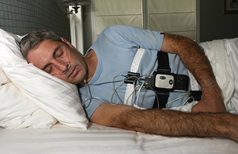Weight Gain Loss and Sleep Apnea.
Introduction to Weight Gain Loss and Sleep Apnea.
It is helpful for sufferers of sleep apnea to lose weight as the condition may be aggravated by excess fat around the neck and throat. This narrows the airway and increases the chances of obstruction.
Certainly the mild form of the condition can be treated by a weight loss program and anyway the apnea will become less severe.
Indeed a new Finnish study has demonstrated that losing weight significantly reduces the condition. In a trial of 81 patients, half went on a strict diet and were given lifestyle counseling. They lost over 20 pounds on average in a year. According to the researchers this resulted in markedly lower symptoms of OSA. The other half, received just lifestyle counseling. They achieved a weight loss of less than six pounds, and their improvement in OSA symptoms was markedly less than the weight loss group.
The greater the change in body weight or waist circumference, the greater the improvement in OSA, said Dr Henri PI Tuomilehto of Kuopio University Hospital, Finland.
Indeedmild OSA was cured in 88% of the patients who lost over 33 pounds. About 62% of those who lost between 11 and 33 pounds were objectively cured of their OSA, as were 38% of those who lost between zero and 11 pounds.In fact only 11% of those who had failed to loseweight or who had gained weight were cured.
Return From Weight Gain Loss and Sleep Apnea to Sleep Apnea Cause Page.








